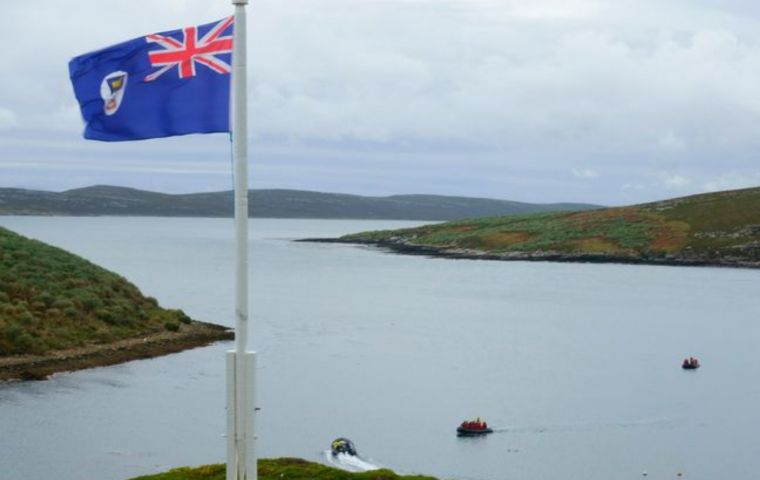MercoPress. South Atlantic News Agency
COVID-19 investigation during the first community outbreak in a remote island: Falkland Islands
 Despite limited natural immunity, our findings suggested that vaccination was effective protecting against severe disease and booster doses provided additional short-term protection against infection
Despite limited natural immunity, our findings suggested that vaccination was effective protecting against severe disease and booster doses provided additional short-term protection against infection Published in the National Library of Medicine, National Center for Biotechnology Information, with the contribution of the following, Alice Wynne; Thomas Bale; Rebecca Edwards; Natalie Wright and Petra Manley
After 2 years of no community outbreaks of COVID-19, the Falkland Islands (FI) reported their first community case in April 2022. Because of high vaccine coverage (88% of entire population), no specific control measures were instigated, and cases spread rapidly.
We undertook a retrospective cohort study to determine the extent of transmission and the effectiveness of COVID-19 vaccine in a population with limited natural immunity. We extracted data on age, sex, and vulnerability for the FI registered population from a patient information system and linked to COVID-19 case line-list and vaccination datasets. Cases were individuals with positive SARS-CoV-2 PCRs or Lateral Flow Devices (LFDs), from 26 April to 30 June 2022.
Univariable analyses compared case risk factors to non-cases. Relative vaccine effectiveness was calculated using Poisson regression with robust error variance, comparing against individuals with vaccination more than the 20 weeks prior to the outbreak. Models were adjusted for age, sex, extreme vulnerability, and previous infection. Of the 3,343 registered population, 44% (n = 1,467) were cases, with no COVID-19 hospitalizations or deaths. In univariable analysis, being female (RR 1.12, p = 0.004) and under 18 years (RR 1.70, p<0.001) were associated with increased COVID-19 risk. Relative vaccine effectiveness was 39.0% (95% CI, 1.03 to 62.5) and 33.0% (95% CI, 8.3 to 51.0) 1 to 9 weeks after receiving 2nd and 1st boosters respectively.
We showed widespread transmission in a small island population with limited natural immunity, disproportionately affecting children and women, indicative of transmission in educational and household settings. Despite limited natural immunity, our findings suggested that vaccination was effective protecting against severe disease and booster doses provided additional short-term protection against infection. We would recommend optimizing coverage with boosters of vaccine in remote island populations such as FI. Follow-up would be needed to assess duration of protection after booster vaccination.




Top Comments
Disclaimer & comment rulesCommenting for this story is now closed.
If you have a Facebook account, become a fan and comment on our Facebook Page!